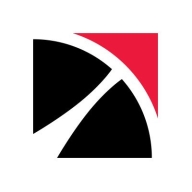

Imperva Data Security Fabric and Trustwave DbProtect compete in the data security sector. While Imperva has an edge in pricing and support, Trustwave offers comprehensive features that justify its higher cost.
Features: Imperva Data Security Fabric offers robust data risk analytics, automated policy enforcement, and strong integration capabilities. Trustwave DbProtect provides comprehensive vulnerability management, real-time database activity monitoring, and in-depth auditing and compliance features. These distinct feature sets align with different organizational needs.
Room for Improvement: Imperva could improve by expanding its feature set related to in-depth auditing and enhancing its real-time monitoring capabilities. Additionally, a slight improvement in its vulnerability management may attract broader interest. Trustwave can aim to streamline its deployment process, update its integration capabilities, and improve user-friendliness to reduce setup complexity.
Ease of Deployment and Customer Service: Imperva provides flexible deployment models with substantial support, making setup user-friendly. Trustwave, though complex in deployment, offers dedicated and responsive customer service. Imperva's ease lies in deployment, whereas Trustwave focuses on superior support service despite setup challenges.
Pricing and ROI: Imperva is more cost-effective, offering quicker ROI due to its straightforward setup and maintenance. Trustwave, with a higher upfront cost, delivers substantial ROI through its detailed security insights. The difference is Trustwave's premium pricing for advanced features contrasted with Imperva's economical options.
| Product | Market Share (%) |
|---|---|
| Imperva Data Security Fabric | 25.6% |
| Trustwave DbProtect | 4.4% |
| Other | 70.0% |


| Company Size | Count |
|---|---|
| Small Business | 26 |
| Midsize Enterprise | 9 |
| Large Enterprise | 32 |
Imperva Data Security Fabric provides cutting-edge database security, featuring capabilities like activity monitoring, web application firewalls, and real-time alerting for comprehensive data protection.
Imperva Data Security Fabric focuses on securing databases through advanced monitoring, logging, and user behavior analysis. With features designed for ease of configuration, it effectively blocks unauthorized access and maintains detailed audit logs. Integration with other systems and automated reporting enhance vulnerability assessments and compliance efforts. Imperva's data discovery, classification, and masking capabilities strengthen security by managing user rights and uncovering vulnerabilities, making it ideal for protecting sensitive data and supporting forensic and compliance needs.
What are the key features of Imperva Data Security Fabric?Imperva Data Security Fabric is widely used across industries like finance and government, focusing on database security, activity monitoring, and user behavior analysis. It is essential for detecting unauthorized access and preventing data breaches while ensuring compliance. Financial institutions and government agencies leverage its capabilities to maintain data integrity and monitor database activities, implementing firewalls and vulnerability assessments that secure on-premises and cloud environments.
Trustwave DbProtect is a security platform designed for consistent monitoring and management of enterprise databases within the data center.
Built on a centrally managed and distributed architecture, DbProtect uncovers database weaknesses. This includes configuration mistakes, identification and access control issues, missing patches, or any toxic combination of settings that could lead to escalation of privileges attacks, data leakage, denial-of-service (DoS), or unauthorized modification of data held within data stores – both relational databases and big data stores.
We monitor all Database Security reviews to prevent fraudulent reviews and keep review quality high. We do not post reviews by company employees or direct competitors. We validate each review for authenticity via cross-reference with LinkedIn, and personal follow-up with the reviewer when necessary.